‘He just loved catching fish’: Frank Puglisi’s lifelong passion
Frank Puglisi adored going fishing. It was a passion that would define his whole life and career.
“He just loved catching fish and he loved to go out on the ocean,” says Joy Puglisi of her husband, who passed away in 2018.
It was no surprise that Frank became a fisherman, explains Joy, as fishing was in his family’s blood.
“His father, grandfather and great grandfather were all fishermen in the Aeolian Islands off the coast of Sicily.”
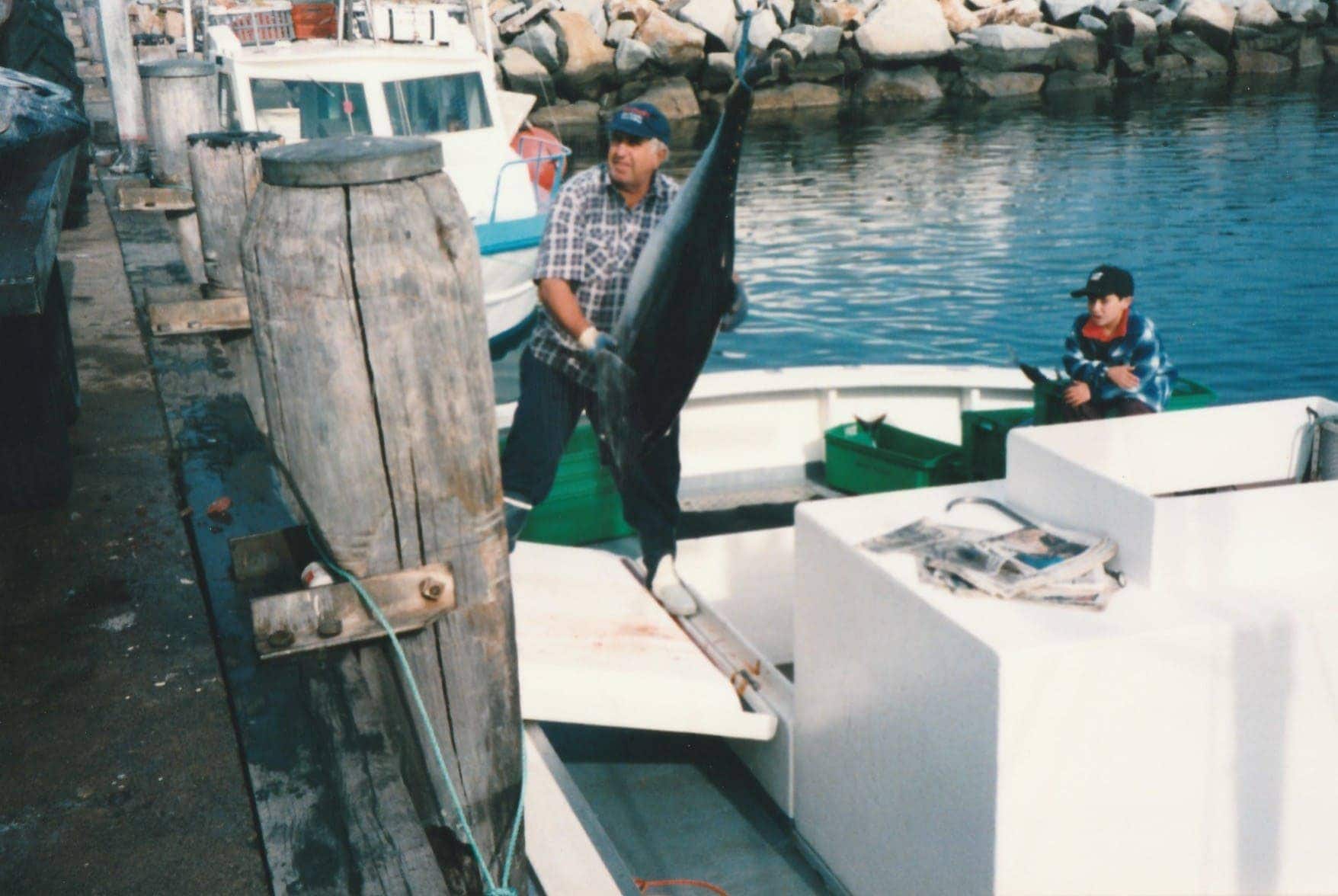
Unloading tuna at Bermagui wharf in 1990.
In early 1950, Frank’s father Camillo moved to Australia seeking a better life. 18-month-old Frank and his mother Eleonora would later join him at the end of 1951.
Growing up in Ulladulla, Frank left school at age 14 to do trawling with his dad. In time, the family partnership, C Puglisi and Sons, grew to have five boats—and Frank took on a leading role.
“Frank purchased his first fishing trawler, the Santa Lucia, in 1972. He managed that boat and did all the shore management,” says Joy, who married Frank in 1977.
“He continued doing that until 1986 when he got involved in the tuna fishery.”
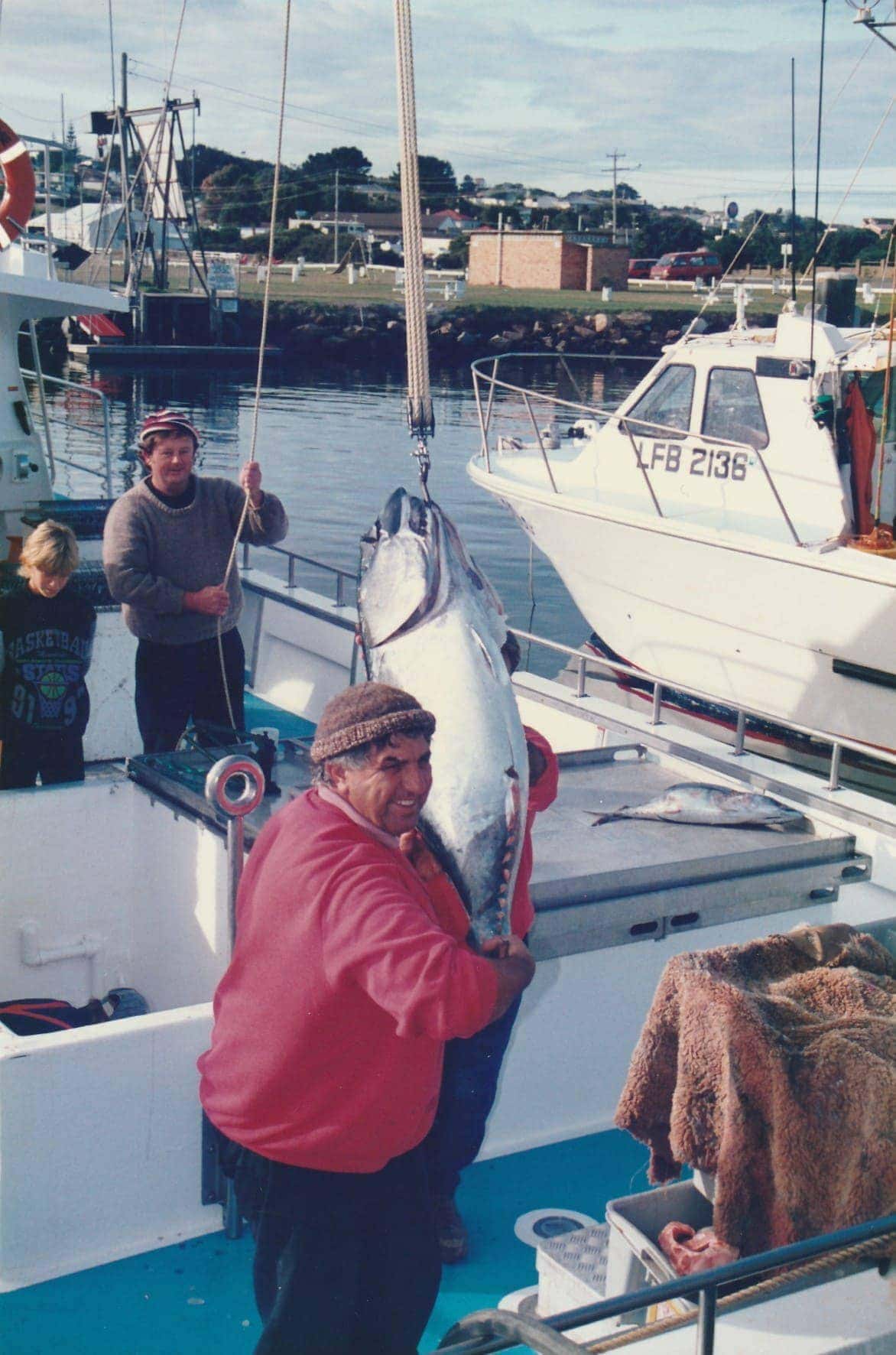
Unloading FV Elena Rose at Bermagui wharf.
From trawling to tuna fishing
Frank was one of the first handful of fishers to take up tuna fishing on the east coast, explains long-time friend and retired fisherman Jim Uttleymoore, who lived in Bermagui for seven years in the 1980s at the same time as Frank.
“Frank and a few others used their trawl boat in the offseason to see what tuna they could catch. Soon after, Frank bought a tuna longline boat, the 42-foot Moonshot, and he very quickly learned how to catch tuna.
Frank was one of the pioneers in developing the east coast longline tuna fishery, which is today a highly sophisticated operation.
Joy explains that tuna fishing became his love, and in 1988 the family partnership purchased the first tuna longline boat that Frank would skipper, the 48-foot Marcello.
“As the tuna longline fishing industry grew so did Frank’s desire for what he would call ‘a better boat for the fishery’, so along would come a new boat,” says Joy, noting that the partnership owned and ran five boats between 1986 and 1990.
The partnership ceased in 2007 after the commonwealth buyback.
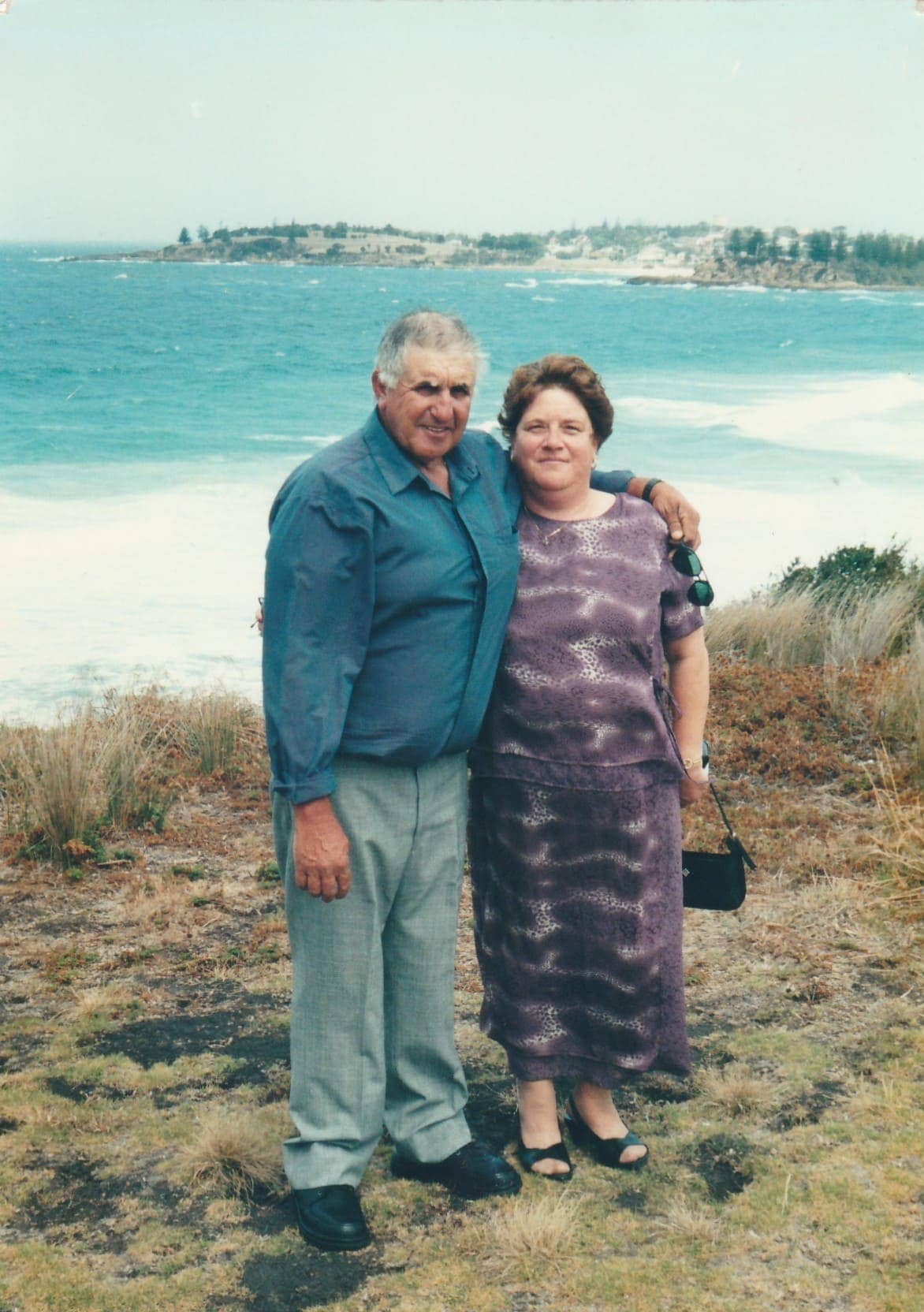
Frank and Joy at a headland in their home fishing port of Bermagui.
Seeing the industry change
Joy explains that Frank saw some big changes during his 42 years as a commercial fisherman.
“In Frank’s era, fishing went from catching whatever they wanted, wherever and in whatever way they wanted, to being highly restricted.”
Technology was quite limited in the ‘early days’, says Joy.
“We’d buy water temperature data off CSIRO, who would send it to us in cardboard postal tubes. But sometimes the data was two weeks old!” exclaims Joy, noting that the tuna fishery is now much more advanced.
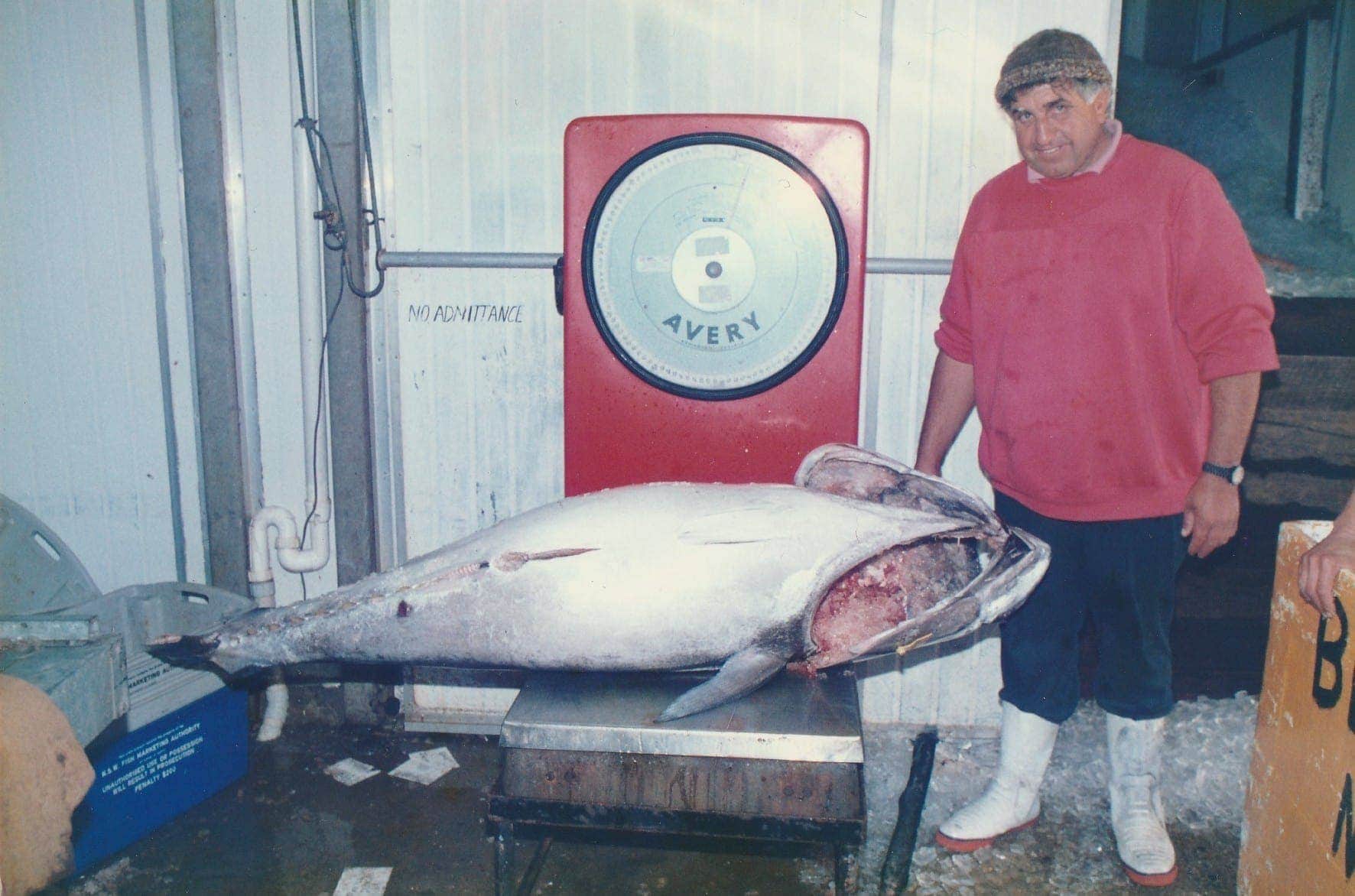
Weighing a fish caught off the 55-foot FV Elena Rose in 1991.
Frank didn’t see quotas introduced during his time as a tuna fisherman, but Joy says he was still a conservationist in his fishing approach.
“He never liked the idea of catching too many little fish. He said it was better to let them grow bigger.”
“One of the quotes he lived by was, ‘Don’t forget the sea is your master, you’re not hers. Always take care.’”
Good memories
A standout moment in Frank’s career was the time he caught a ‘very soft’ 100 kg bigeye tuna says Joy.
“It wasn’t hard at all. It was totally soft. Everyone said, ‘you won’t get anything for this fish’.”
That’s why everyone was taken aback when the market price came back as 20,000 yen/kg—the equivalent of AUD 200/kg.
“At the time, it was an Australian record for the highest per kilogram price,” says Joy of the fish, which was so soft because it had so much fat in it.
“It was an exceptional case and probably one of his best achievements.”
One of Franks’ biggest regrets came in 1994.
“One of our boats, the Laurina P, had caught a Pacific Bluefin that had a 416 kg process weight. The skipper rang and told Frank to come to have a look. Frank replied, ‘no, I’m going fishing’.”
“I think he regretted that he never saw that fish.”
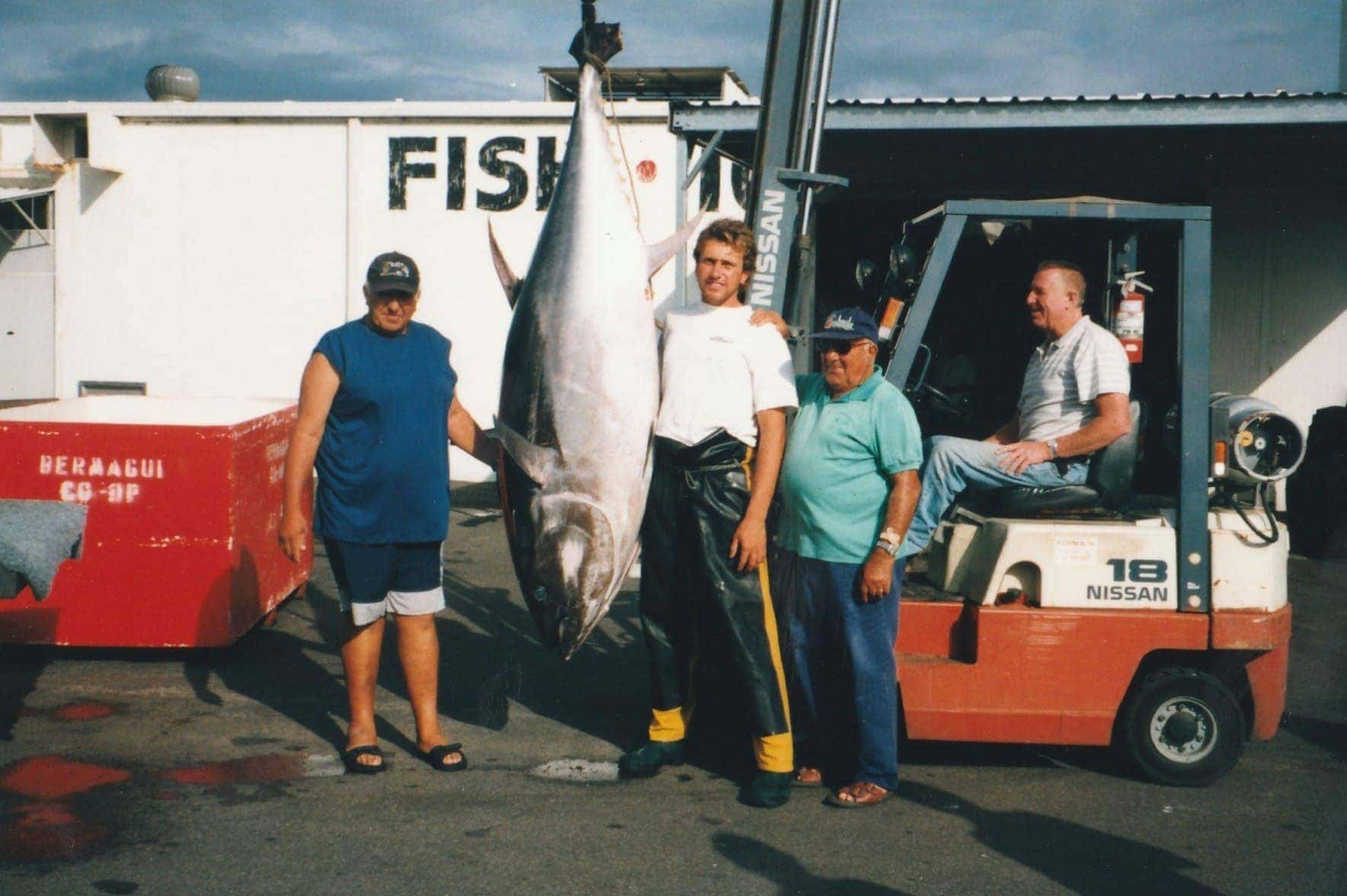
(L-R) Frank with his son Camillo and father Camillo weighing a Pacific Bluefin tuna in 1994.
An opportunity that almost passed him by, recalls Joy, was when he hesitated over letting their ‘excellent’ bookkeeper try working as a deckhand.
“I eventually convinced Frank to give him a shot. Sure enough, the bookkeeper turned out to be the best deckhand Frank had ever had.”
When it comes to talking about Frank’s favourite seafood dish, Joy doesn’t miss a beat.
“Oh, that’s easy—spaghetti marinara. Other favourites were broadbill in sauce, swordfish and Italian fish soup.”
A lasting legacy
Frank continued fishing commercially until 2006 when some health issues brought his long career to a stop, much to his and his friends’ and workers’ disappointment.
“Once he was off the boats, he would still go down to the wharf with his grandson to catch slimy mackerel and little roughies. He was a fisherman from go to woe,” says Jim.
“Frank was a gentle giant. If I was to call him up today, the first thing he’d say to me would be, ‘Is there anything I can help you with?’”
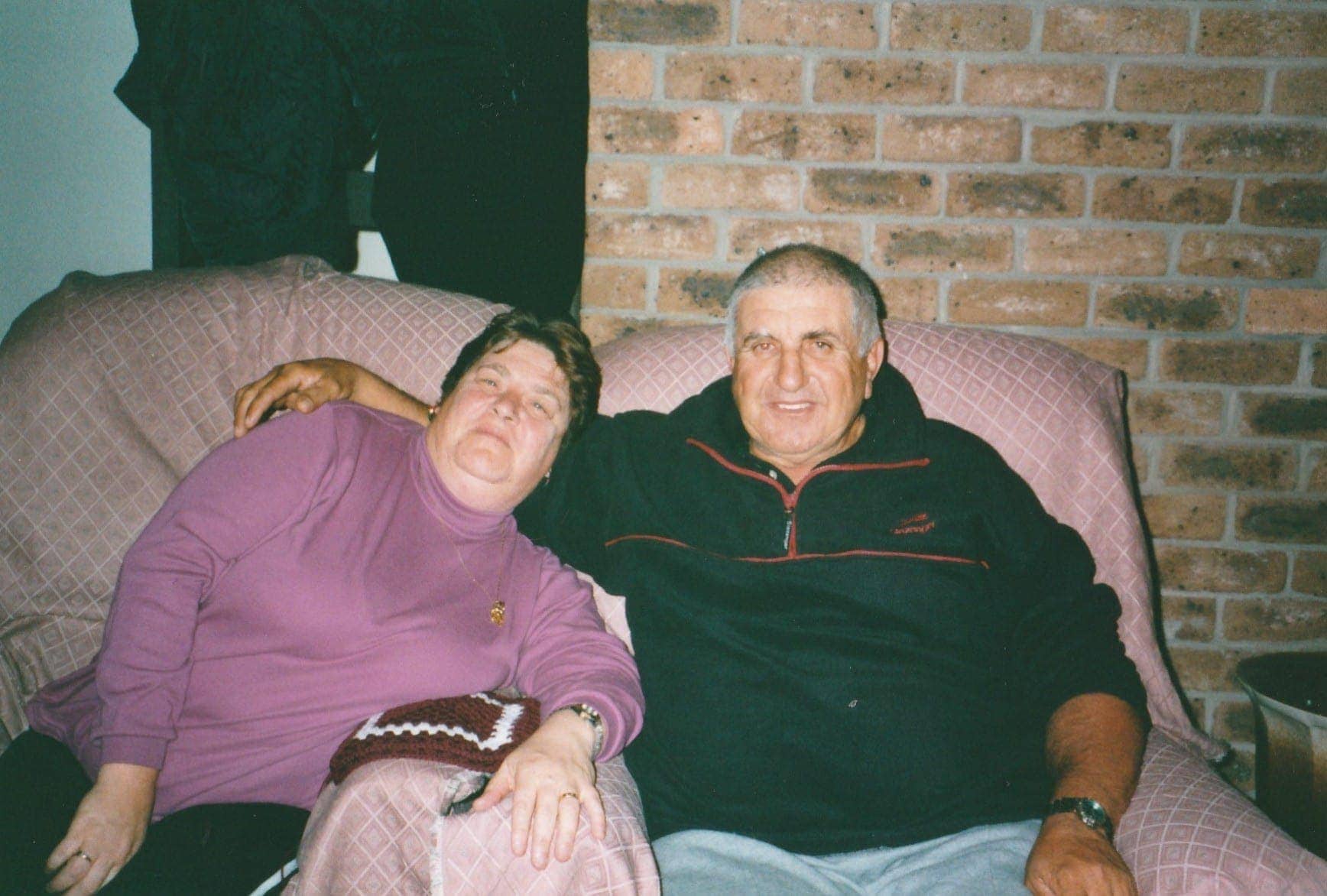
“Frank and I were a team and, I believe, a very good team,” says Joy Puglisi.
Joy adds, “He was a hardworking, generous, respectful man. It didn’t matter to Frank who you were. You could have been the skipper of the biggest boat or the deckie—to him, you were the same.”
Frank was always willing to pass on his knowledge to the young people coming through his boat, explains Joy.
“There were probably 8–10 young boys who worked for Frank as a skipper back in the early days. A number of them have gone on to skipper their own boats.”
Frank’s son Camillo has also gone on to own and work a fishing boat, and it looks likely that Frank’s 16-year-old grandson will follow in the family’s footsteps.
“He always believed that if you want to work hard and put your effort into things, anything is possible,” says Joy.